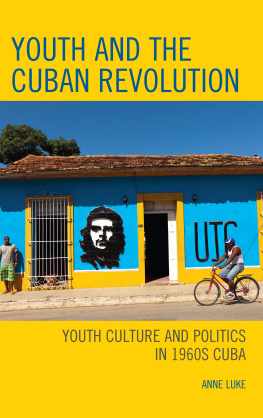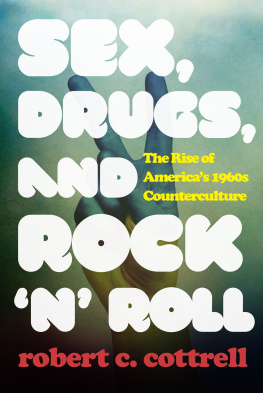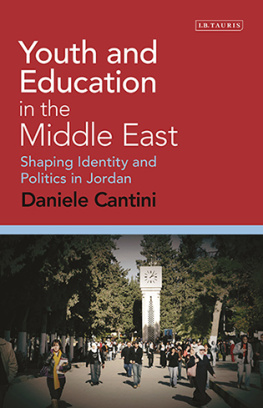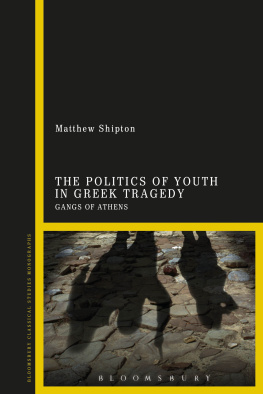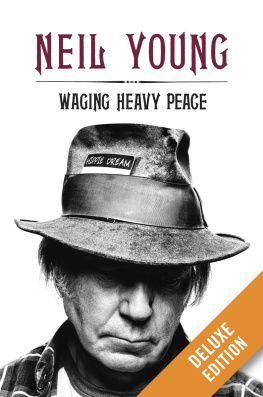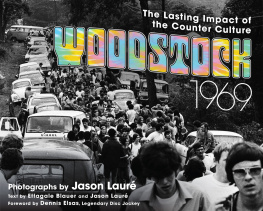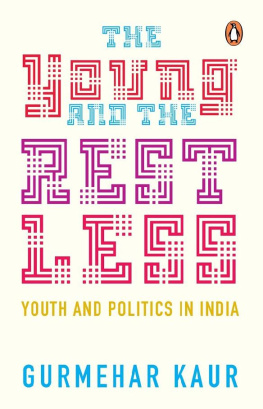Contents
Guide
Pagebreaks of the print version
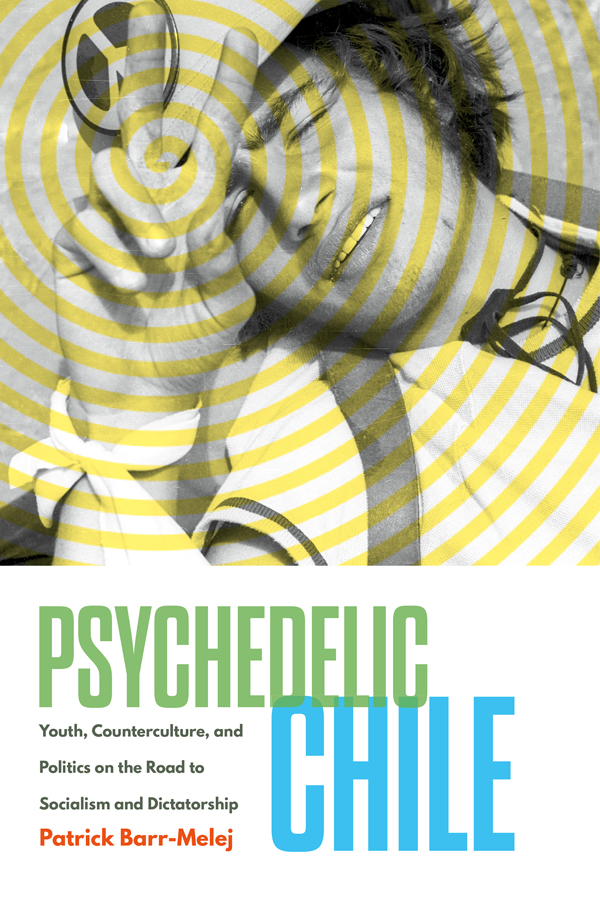
Psychedelic Chile
Psychedelic Chile
Youth, Counterculture, and Politics on the Road to Socialism and Dictatorship

PATRICK BARR-MELEJ
The University of North Carolina Press Chapel Hill
2017 The University of North Carolina Press
All rights reserved
Set in Charis and Lato by Westchester Publishing Services
Manufactured in the United States of America
The University of North Carolina Press has been a member of the Green Press Initiative since 2003.
Library of Congress Cataloging-in-Publication Data
Names: Barr-Melej, Patrick, author.
Title: Psychedelic Chile : youth, counterculture, and politics on the road to socialism and dictatorship / Patrick Barr-Melej.
Description: Chapel Hill : University of North Carolina Press, [2017] | Includes bibliographical references and index.
Identifiers: LCCN 2016045887| ISBN 9781469632568 (cloth : alk. paper) | ISBN 9781469632575 (pbk : alk. paper) | ISBN 9781469632582 (ebook)
Subjects: LCSH : ChilePolitics and government19701973. | CountercultureChileHistory20th century. | HippiesChileHistory20th century. | YouthPolitical ActivityChileHistory20th century. | ChileSocial conditions20th century.
Classification: LCC F3100 .B356 2017 | DDC 983.06/46dc23 LC record available at https://lccn.loc.gov/2016045887
Cover illustration: Photograph of young man at the 1970 Piedra Roja festival in Las Condes, Chile ( Paul Lowry, used with permission).
Portions of chapters 1, 4, and 5 were previously published as Hippismo a la chilena: Juventud y heterodoxia cultural en un contexto transnacional, 19701973, in Ampliando miradas: Chile y su historia en un tiempo global , ed. Fernando Purcell and Alfredo Riquelme (Santiago: RIL Editores, 2009), 30525. Used here with permission.
Portions of chapter 6 were previously published as Silosmo and the Self in Allendes Chile: Youth, Total Revolution, and the Roots of the Humanist Movement, Hispanic American Historical Review 86, no. 4 (2006): 74784, doi:10.1215/00182168-2006-049. Republished by permission of Duke University Press, www.dukeupress.edu.
For Melissa, our children,
and my parents.
Contents
Young Jorge and the Criollo Woodstock
Coming to Grips with the Youth Question
Sex, Drugs, and Rock (n Roll)
Bad Vibes and the Politics of Incrimination
Illustrations
Acknowledgments
I may not have gone where I intended to go, but I think I have ended up where I needed to be.
Douglas Adams, The Long Dark Tea-Time of the Soul
Ending this books journey brings with it reflection from which deep gratitude and heartfelt emotions spring. My debts are many, and the following few paragraphs only begin to express my appreciation to those who were with me on the trek.
Tulio Halpern-Donghi, my dissertation adviser at Berkeley in the 1990s, was a brilliant and world-renowned historianand he had a big heart. Soon after my first childs birth nearly twenty years ago, Tulio invited me to lunch at Berkeleys faculty club to discuss turning my dissertation into what became my first book. When I arrived there, he was waiting for me in the lobby, with a wrapped package in hand. Inside was a stuffed animala gift for my newborn daughter, Eva. With a smile, he remarked that the gift came with a caveat: that my wife and I never call her Evita. (Those who knew Tulio will most appreciate the Argentines quip.) It just so happens, we never have. My otherand firstgraduate mentor was Arnold J. Bauer, whose erudition, kindheartedness, sympathetic soul, and humility were even larger than his imposing frame. Arnies deep love for Chile and its people is evident in what he wrote, and it also appeared in his eyes when he spoke of that beautiful land on the edge of the earth. Arnie saw a historians work not as a vocational pursuit but rather as a pilgrims sojourn into the lives of those who wait patiently in the past to teach us something about our humanity. Both Tulio and Arnie passed away while I was writing this book. I am immensely fortunate to have been their student and to have experienced their kindness.
When working to finish this project, few things were as motivating as friends and colleagues repeatedly asking: When is that book coming out? As many authors know, the question can get oldreally fastbut it springs from genuine comradeship and support. I warmly thank Claudio Robles Ortiz, James Cane-Carrasco, Valeria Manzano, Eric Zolov, William Skuban, Brenda Elsey, Jaime Pensado, Francisco Barbosa, Anadelia Romo, Daryle Williams, Mary Kay Vaughan, Claudio Rolle, Fernando Purcell, Alfredo Riquelme, J. Pablo Silva, Eduardo Devs, Sergio Grez, Margaret Power, Juan Luis Ossa, Ivn Jaksic, Oscar Ortiz, Lessie Jo Frazier, and Fabio Salas Ziga for their encouragement and feedback as I researched, thought about, and wrote these chapters. I also extend thanks to my Ohio University colleagues Robert Ingram, Katherine Jellison, and Michele Clouse, and to the universitys Office of the Vice President for Research for its financial support.
I am indebted to Gary Fritz, Julin Burgos, Pa Figueroa Edwards, Carlos Lowry, and Mario Luis Rodrguez Cobos for their tremendous help in my efforts to piece together the stories herein. Of great assistance, too, was Pink Lizard, the nom de hippie of an American whose recording of short interviews at a momentous Chilean rock festival is the kind of source about which historians dream. It saddens me that he did not live to read about his youthful exploits in this book. Former students of mine at Ohio University, Chiles Pontifical Catholic University, and the University of Concepcin also have my gratitude for helping me work through many of the ideas at the heart of this study. I especially thank Sebastin Hurtado Torres, Brad Eidahl, Jared Bibler, Carla Rivera, Marcelo Casals, Diego Mundaca, Rbinson Lira, Leslie Perera, Anne Allman, and Christina Matzen. I also thank Michael Elliot, Amanda Roden, Paul Relstab, and Leah Graysmith for their assistance. Jaime Romn and Liliana Montesinos at Chiles National Library brought smiles to long days of work, and the staffs at the Library of Congress and National Administration Archive in Santiago have my gratitude. Special thanks go to Chiles National Historical Museum and to Paul Lowry for permitting the use of their photographs. To the crew at Donkey Coffee in Athens, Ohio: thank you for providing the best possible space for sitting down with a laptop, some thoughts, and a decaf iced mocha.
My wife, Melissa Barr, and our children, Eva Gabriela, Emilia Violeta, and Nicols Abraham, have taught me volumes about lifes simple joys and loves indefatigability. Despite my many shortcomings, they make me better every day. In the mid-1960s, my parents, Roger Barr, a Wisconsinite by birth, and Cinthia Melej, a santiaguina , met in La Serena, Chile, not very far from where my father served as a Peace Corps volunteer in Guanaquerosthen a poor fishing village, now a vacation hot spot. I am forever grateful to my parents for making Chile my second home, just as I am blessed to have my loving godparents, Silvia Bullez Melej and Walter Bufadel, always waiting for me in Santiago. Violeta Gonzlez Ossandn, my grandmother to whom I dedicated my first book, passed away before I could share this one with her. She was a strong woman with a powerful spirit and inexhaustible love, and I find solace in thinking that when I write about Chile, in a way Im writing about her. I also lost my paternal grandmother, Dorothy Barr, while on this academic journey. I take with me her beaming smile and love.


